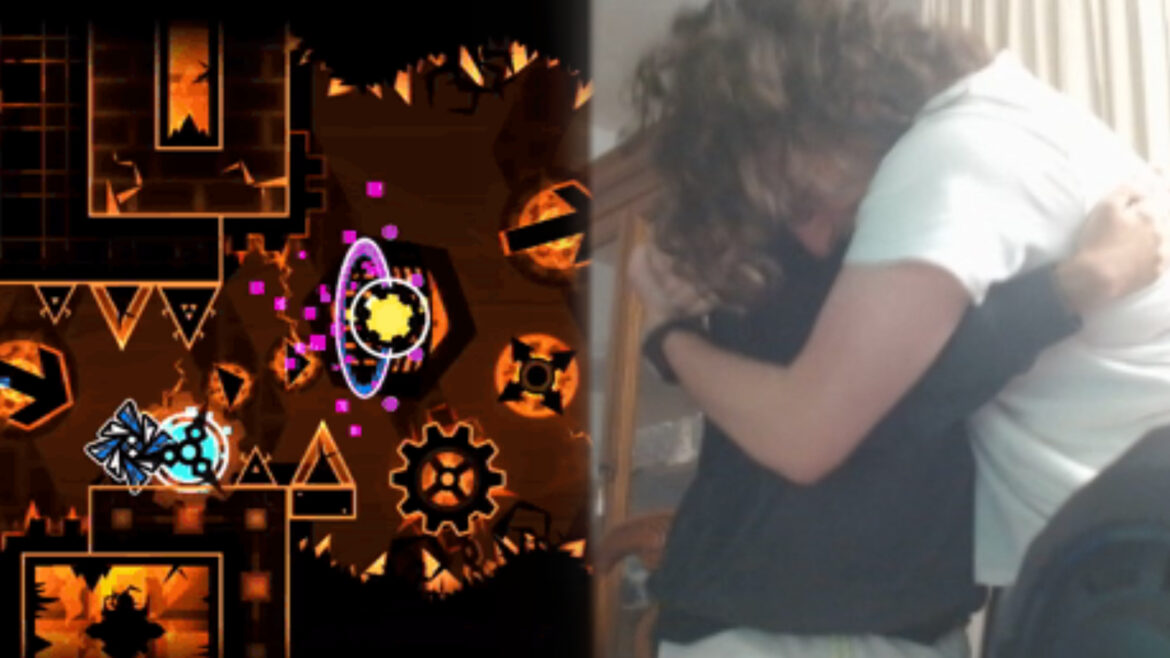Just three weeks ago, Geometry Dash streamer ‘Cuatrocientosgd’ went viral for their soul-crushing fail in the game’s hardest level. Now, they’ve finally redeemed themselves by becoming the first player in the world to conquer the challenge of Flamewall.
Although Geometry Dash released 12 years ago, the game still has a fairly vibrant community as dedicated players keep it alive through fan-made maps. For many, this is where skills are truly put to the test, as many are designed to be all but ‘humanly impossible.’
Article continues after ad
The toughest challenge of them all, however, is none other than Flamewall. An infamous stage in the community, it was indeed considered impossible for the longest time, even resulting in one of the most viral gaming fails of the year. But now, it’s finally been conquered.
Just weeks after coming nail-bitingly close with a 99% run, falling short with the very last input, Twitch streamer cuatrocientosgd has redeemed themselves. They now hold claim to being the first in the world to topple Flamewall.
Article continues after ad
Article continues after ad
Viral Geometry Dash streamer returns to conquer ‘impossible’ level
Earlier this month, the streamer went viral for the wrong reason. After months of trial and error, committing every frame to muscle memory, they had seemingly made it through Flamewall. Though in the final moment, one missed input led to a devastating fail at 99% completion.
Naturally, they freaked out and even hunched over in tears. Dozens of hours of hard work amounted to a viral fail they never could have imagined.
For many, this would have been the final straw, but cuatrocientosgd was committed. The very next day, they were back to practicing, and now, after a few weeks in the lab, they’ve emerged with a world-first run of Flamewall.
Article continues after ad
After more than 200,000 attempts, they finally got it done on September 21, 2025, as fans watched along live. Jumping and screaming with joy as family celebrated alongside them and their heart rate spike to almost 190BPM, they redeemed themselves for the world to see.
Article continues after ad





